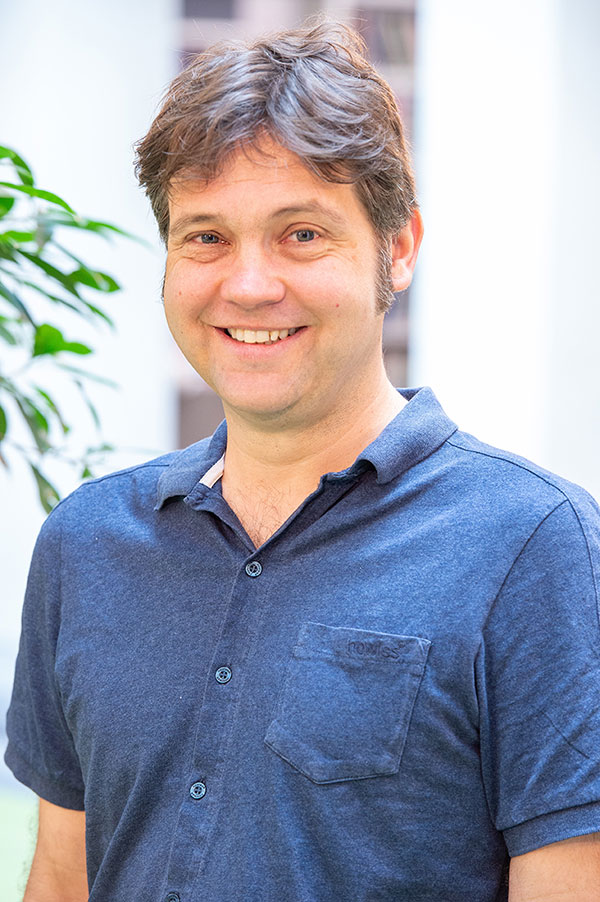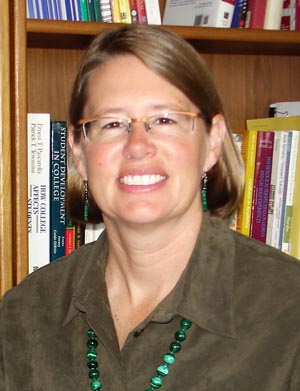IHEC 2021 Proceedings Book
IHEC 2021 Full Paper Book (PDF)

Yükseköğretim Çalışmaları Derneği
Yükseköğretim Çalışmaları Derneği

Paul Ashwin is Professor of Higher Education and Head of the Department of Educational Research, Lancaster University, UK. Paul’s research focuses on teaching, learning and curriculum practices in higher education and how they are shaped by higher education policies. His recent books include ‘Transforming University Education: A manifesto’ (Bloomsbury 2020) and he is the lead author of Reflective Teaching in Higher Education (2015, 2020 Bloomsbury), which is designed for all those working in higher education who are interested in further developing research-informed approaches to university teaching. Paul is Deputy Director of the Centre for Global Higher Education (CGHE), which is funded by the Economic and Social Research Council, Office for Students and Research England, a coordinating editor for the international journal ‘Higher Education,’ and co-editor of the Bloomsbury book series ‘Understanding Student Experiences of Higher Education’.
In this keynote, I will examine two potential futures for student participation and university education following the Covid-19 pandemic. The first future highlights the dangers of the economic arguments dominating our understanding of the purposes of university education given the unexpected social and economic challenges that have arisen in the wake of Covid-19. This is a danger because these arguments support a view that the main purpose of higher education is to ‘signal’ that graduates are worth employing. This view undermines higher education as an educational endeavour because it implies there is nothing special about the knowledge, forms of student participation, or institutional settings offered by universities. It also tends to reinforce inequalities by mistaking social privilege for academic ability in students and institutional prestige for quality in universities. In response, I will offer an alternative future that focuses on understanding the purposes of a university education in terms of students developing transformational relationships to disciplinary and professional knowledge through their participation in higher education and show how this supports a more effective educational response to the global pandemic.

Dr. Christine Cress is Professor of Educational Policy and Leadership at Portland State University in Oregon, USA. A former Fulbright Senior Scholar to Middle East Technical University in Turkey, she has conducted over 200 trainings on intercultural communication, social justice, and educational equity across the U.S., Europe, India, and Japan. She is lead author of the internationally best-selling book, “Learning through Serving: A Student Guidebook for Service-Learning Across Academic Disciplines and Cultural Communities.” Currently, she is a U.S. State Department Connected-Classrooms Scholar focused on using technology to bridge cross-cultural learning with American and Moroccan medical students in addressing community healthcare needs.
This presentation will offer a new pedagogical model of “critical service-learning” that can be adapted to any academic discipline in order to empower student learning, faculty scholarship, and societal success.
Colleges and universities help form the talents, values, and mind-sets of students in part by intentionally contributing to the betterment of the communities in which they are situated. Forms of service-learning have been taught for decades around the world focused on teaching civically-related knowledge and skills through problem-based learning to improve communities. In fact, the research outcomes of such experiences are significant across student learning, societal empowerment, and disciplinary scholarship.
However, inattention to service-learning pedagogical design and lack of intercultural preparation have led to interactions that can denigrate community members, perpetuate power inequities, and prevent individuals and communities from capacity-building. Given our moment in time, a new set of educational principles is needed to guide academic service-learning.
Drawing from the scholarly literature on critical race theory, intercultural communication theory, and social-constructivism, this presentation will deconstruct normative views of “excellence” in academic-based community service and then reconstruct a new pedagogical paradigm of critical service-learning. Specifically, the equity-centered principles of justice, solidarity, and integrity will be operationalized to guide faculty and other higher education professionals in their creation of service-learning curriculum, activities, collaborations, and scholarship.
Unfortunately, some faculty fear that such involvement with the community will be viewed as a political statement rather than as a legitimate pedagogy of engagement. But scores of faculty across the globe have demonstrated that it is possible to teach service-learning courses without promoting a particular ideological bias and while making a significant impact on student learning and positive community change. As such, the presentation will not be a step-by-step scaffold for teaching “how to save the world”. Rather, the intention is to offer a pedagogical framework for community-engaged learning through individual faculty decision-making about the appropriate epistemological mixture of content, activities, engagement, and assessment that can be adapted to any academic discipline.
Özlem Salı (ISU TELEC)
Zeynep Kızıltepe (ISU TELEC)
Ali Işık (ISU)
Talip Gülle (ISU TELEC)
Melike İşcan (ISU TELEC)
Fatma Nevra Seggie (Boğaziçi University, YÖÇAD)
Şahabettin Akşab (Gaziantep University, YÖÇAD)
Alper Çalıkoğlu (MoNE, YÖÇAD)
Hakan Ergin (İstanbul University, YÖÇAD)
Serap Emil (METU, YÖÇAD)
Although the term participation in the literature generally refers to student access to or engagement in higher education, we are redefining it as “an action or involvement of the people” – students, faculty members, administrators, academic and administrative support staff, and alumni – in universities. We see it as encompassing the experience of all contributors to university life. For students, it is academic and socio-cultural engagement in university life. For faculty members, it is involvement in teaching, research, community service, and decision making. For administrators, it is the use of shared governance bodies. For academic and administrative support staff, it is the maintenance and progress of the system. For alumni, it is feedback in response to the education received and ongoing contributions to connecting the university with society and industry.
From this perspective, university can be defined as a “living organism which is dominated by rationality, kinship, generosity, indulgence; and whose capacity of critical thinking is not limited” (Tekeli, 2010, p. 367). It continues to exist through the active participation of its stakeholders in teaching and learning, research and innovation, community service and administration. It is important to note that participation as an action or involvement in higher education has been evolving over time in the presence of new opportunities but also unexpected uncertainties and crises such as pandemics.
The whole world has been going through a difficult time. The breakout of coronavirus disease (COVID-19), declared a pandemic by the World Health Organization in March 2020, has not only overwhelmed national health systems, but also resulted in border closures, lockdown of people at home, suspension of public services and severe economic contractions across the world. This has inevitably impacted the way we engage in higher education. Still, engagement or participation has always been one of the foci of higher education studies. At this time, we call upon the members of higher education to reflect on their participation before, during and after the pandemic regarding teaching, research, community service and the administration of universities.
To this end, the organizing committee of the IHEC 2021 invites all of you to discuss and share your work, perception and experience regarding participation in higher education before and during the pandemic from the perspective of education, research, community service and the administration of universities. Studies regarding the ‘new normal’ within the context of higher education are also welcome. Under the conference theme Participation in Higher Education, the sub-themes include but are not limited to:
Abstract submissions are closed.
A typical structure for an oral presentation includes completed or close to completion research studies. After an author’s presentation, critique, and discussion by the session chair and participants. For the presentation of their work, individuals must be attentive to the time allocation. Session chairs may adjust the timing based on the number of presentations for the session. Each oral presentation will be scheduled for 15 minutes.
Abstract for Oral Presentation: Excluding references, the abstract should be between 500-750 words and include the following sub-titles:
Each symposium proposal must include minimum 3 maximum 5 presentations. The Symposium Discussant must introduce symposium presenters and submit the proposal (symposium summary and symposium presentation abstracts).
Symposium Summary: Excluding references, the summary should be between 500-700 words and include the description of the symposium, its purpose, conceptual/theoretical framework, the contribution of symposium presentations to the symposium, discussion points and conclusion.
Symposium Presentation Abstracts: Each abstract, excluding references, should be between 300-500 words and include the following sub-titles:
Roundtable sessions allow high interaction among presenters and with attendees. It would be more appropriate for junior researchers and work-in-progress research studies. The discussions will take place in a small group of session presenters clustered around shared interests in a roundtable/boardroom setting. A moderator who is knowledgeable about the research area facilitates interaction and participation. The moderator introduces the discussion topic and session presenters briefly. Then, the discussion focuses on specific questions and challenges. The conclusions such as key-learnings, ideas on the next steps and concrete actions are drawn.
Abstract for Roundtable Session: Session presenters are required to submit a paper or commentary paper addressing central questions regarding the issue under consideration. Excluding references, the abstract should be between 350-400 words. Commentary papers need to address the elements required for paper submissions:
Poster sessions enable the individualized and informal discussion of the presenter’s work with the visual representations of materials. Poster presentations can be appropriate for master’s and doctoral level students. All poster presenters should provide an e-Poster (in pdf format) facilitating the session. Individual presenters set up virtual displays representing their papers. The poster session gives a chance to attendees to view posters online, listen to author’s presentations and access handouts. Unlike a general session, a poster session allows viewers to study and re-study information and discuss it with practitioners one-on-one.
Description of the Poster: Excluding references, the description of the poster should be between 350-500 words and include
Working languages of the conference are Turkish and English. Authors of English abstracts are required to present in English.
IHEC 2021 is a scientific conference where every paper/symposium submitted to the conference will go through a “blind peer review” process carried out by a minimum of 2 experienced scholars in their respective areas. Notification of acceptance or rejection will be done based on review results.
For each co-authored paper, the participant(s) who will present the paper must register to the conference. One participant can present a maximum of 2 papers.
Each author may appear maximum in 3 papers.
In order to be included in the conference program, please register until 27 August 2021 .
Certificate of attendances will be given only to participants who register and attend the conference.
Registration (23 July – 27 August 2021)
| Faculty Members | Graduate Students | For Non-Presenters |
| 100 USD | 50 USD | 75 USD |
Notes
Payment
Bank Account (USD)
Account Name : Yükseköğretim Çalışmaları Derneği
Bank : Garanti Bank
Branch : Pendik
Branch Code: 137
City : Istanbul
Hesap No : 6293098
Account Number : 9072493
IBAN : TR92 0006 2000 1370 0006 2930 98
Swift Code : TGBATRISXXX